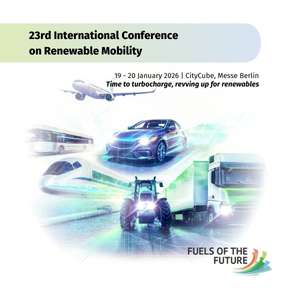Berkeley reviews biodiesel feedstocks
Berkeley has determined virgin-crop biodiesel is not beneficial to green house gas emissions.
'We are looking to replace virgin biodiesel (B20) with yellow grease B20 or any other product that is at least 5% lower carbon content than petroleum fuels,’ a city spokesman says.
The carbon calculation must consider land use change impacts, as required by the California low carbon fuel initiative per California Air Resources Board.
Yellow and brown grease and tallow are considered favourable feedstocks for biodiesel.
Future fuels from waste cellulose will also be positive for land use change calculations. Soon, there will be algal diesel which also has low impact on land use. What is considered negative are crops like corn, date, soya used to generate biodiesel, the city finds.
In 2003 the city started using 100% biodiesel in more than 100 cars and trucks that ran on diesel fuel.
Initially the biodiesel was derived from recycled frying grease, but gradually the supply changed to a crop-based biofuel.
The city stopped receiving shipments of biodiesel derived from soyabean crops last month, and has pledged to consider formalising its policy on the matter in September.











